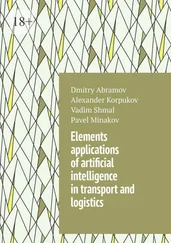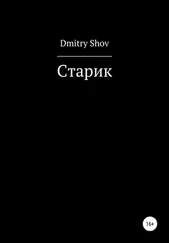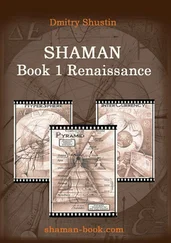‘Yes,’ Anton agreed indifferently.
‘He told us that you served in the rocket forces. Strategic.’
‘Tactical,’ Anton replied.
‘The “Tochka” and the “Iskander”.’
‘And multiple fire systems? “Smerch”, “Uragan”?’ having held back a little, the stalker, who had been listening to their conversation, asked.
‘I can operate those, too. I was a career soldier, and they taught it to us. And everyone was interested in it. Everyone wanted to try it. Until I saw what it led to.’
There was not the smallest sign of interest in his voice, and there was no uneasiness regarding the fact that his secret was known to strangers. His answers were short, mechanical. Melnik, nodding, again moved away from them, going on ahead.
‘We need your help very much,’ Artyom said, carefully testing the waters. ‘Understand, we have terrible things happening at VDNKh,’ he began. And he immediately stopped short: after what he had seen in the last twenty-four hours, what happened at VDNKh, however awful, didn’t seem like anything exceptional, capable of overwhelming the metro and finally destroying man as a biological species. Artyom considered this thought, and reminded himself that it could be coming from the strange entity. ‘We have some creatures getting through from the surface,’ he continued, having collected his thoughts. But Anton stopped him with a gesture.
‘Just say what has to be done, and I will do it,’ he uttered colourlessly. ‘I have the time now… How can I return home without my son?’
Artyom nodded nervously and walked away from the man leaving him along with his thoughts. Now he felt unclean, seeking help from a man who had just lost a child… He had been deprived of him through his, Artyom’s, fault…
He caught up with the stalker again. Melnik was clearly in a good mood. Having left the party stretched out behind him, he was humming something to himself and, seeing Artyom, smiled at him. Listening to the melody Melnik was trying to reproduce, Artyom recognized that very song about the sacred war they had been singing on the roof of the train.
‘You know, at first I decided this is the song for our war with the dark ones,’ he said, ‘and then I understood that it is about fascists. Who composed it? The communists from the Red Line?’
‘This song is already about a hundred years old, if not a hundred and fifty.’ Melnik shook his head.
‘They composed it first for one war, then adapted it for another. It’s good that it is suitable for any war. As long as man is alive, he will always deem himself to be the light of the world, and consider his enemies as the darkness. And they will be thinking like that on both sides of the front,’ Artyom added to himself. ‘Whatever it means.’ His mind again flashed to the dark ones. ‘Maybe it means that people, let’s say the VDNKh inhabitants, are the evil and darkness for them?’ Artyom thought better of it and forbade himself to think of the dark ones as ordinary enemies. If one open the door for them only half way, nothing would hold them back…
‘So you were saying about this song that it is eternal,’ Melnik unexpectedly spoke. ‘That dawned on me, too. In our country all eras are much the same. Take people… You won’t change them in any way. They’re as stubborn as mules. So, it would seem the end of the world is already at hand and you cannot go outside without an anti-radiation suit, and every kind of trash that earlier you only saw at the cinema has multiplied… No! You don’t impress them! They’re the same. Sometimes it seems to me that nothing has ever changed. Well, I visited the Kremlin today,’ he smiled wryly, ‘and I was thinking: there’s not even anything new there. I’m not even certain when they hit us with this crap: thirty years ago or three hundred.’
‘Were there really such weapons three hundred years ago?’ Artyom was doubtful, but the stalker didn’t reply. They’d seen two or three depictions of the Great Worm on the floor, but there had been no sign of the savages themselves. The first drawing had put the fighters on their guard, and they’d regrouped in such a way that it was easier to defend themselves, but the tension had dissipated after they’d encountered the third drawing.
‘They weren’t jabbering nonsense. Today was a holy day and they stay at the stations and don’t go into the tunnels,’ Ulman noted with relief.
Something else occupied the stalker. By his calculations, the missile unit was very close by. Checking the hand-drawn map every minute, he absently repeated:
‘Somewhere here… Isn’t this it? No, not that corner, but where is the pressurized gate? We ought to be approaching it already…’
Finally, they stopped at a fork: to the left was a dead end with a grille, at the end of which they could see the remains of a pressurized gate, and to the right, as far as the light of the flashlight could reach, there was a straight tunnel.
‘That’s it!’ Melnik determined. ‘We’re there. Everything tallies with the map. There, behind the grille, the tunnel has collapsed like at Park Pobedy. And that must be the passage into which they took Tretyak. So…’ Illuminating the map with his pocket flashlight, he thought aloud, ‘The line goes directly from this fork to the division, and this one, to the Kremlin, we came from there, right.’ Then he climbed behind the grille with Ulman and they wandered around the dead end for about ten minutes, inspecting the walls and ceiling with the flashlight.
‘OK! There’s a passage in the floor this time, a round sort of top, similar to a sewer manhole,’ the returning stalker reported. ‘Everyone, we are there. Take a break.’
As soon as everyone had removed their rucksacks and had sprawled out on the ground, something strange happened to Artyom: despite the awkward position, he fell asleep instantly. Either the fatigue accumulated in the last twenty-four hours had taken its toll or the poison from the paralysing needle was producing some side effects.
Artyom again saw himself, asleep, in the tent at VNDKh. As in his earlier dream, it was gloomy and abandoned at the station. Artyom knew beforehand what would happen to him now. Already accustomed to saying hello to the little girl who was playing, he didn’t ask her about anything, heading instead directly toward the tracks. The distant cries and entreaties for mercy didn’t frighten him. He knew that he was seeing the unwelcome dream again for another reason, one that concealed in the tunnels. He was supposed to uncover the nature of the threat, reconnoitre the situation and report about it to his allies from the south. But as soon as he was shrouded in the darkness of the tunnel, his confidence in himself and in the fact that he knew why he was here and how he had to go on vaporized. He was as frightened as when he went beyond the limits of the station alone for the first time. And exactly as then, it wasn’t the darkness itself nor the rustle of the tunnels that scared him, but the unknown, the inability to foretell what danger the next hundred metres of the line concealed.
Vaguely recalling how he had behaved in previous dreams, he decided not to give in to fear this time, but to go forward, until he met the one who was concealed in the dark, waiting for him.
Someone was coming towards him. Not hurrying, as he was, not walking with his cowardly, slinking short steps, but with a confident heavy tread. Artyom stopped in his tracks, catching his breath. The other one also stopped.
Artyom promised himself that he wouldn’t run this time regardless of what happened. When, judging by the sound, only about three metres of darkness separated them, Artyom’s knees shook, but somehow he found the strength to make one more step. But, feeling a light flutter of the air on his face as someone approached, Artyom couldn’t bear it. Flinging out a hand, he pushed the unseen being away and fled. This time he didn’t stumble and he ran for an intolerably long time, an hour or two, but there was no trace of his home station, there were no stations at all, nothing at all, only an endless, dark tunnel. And this proved to be even more terrible.
Читать дальше











